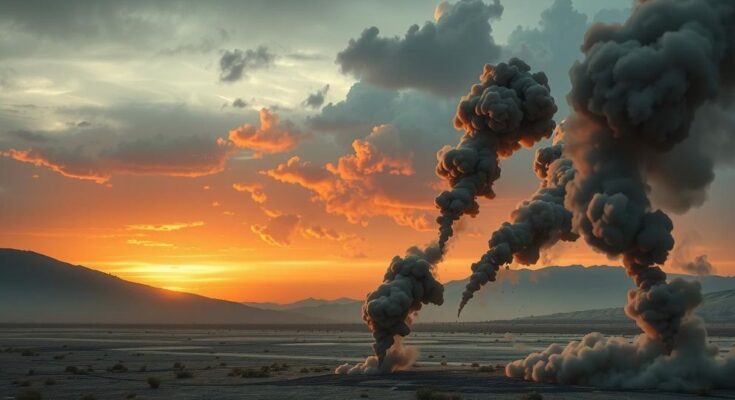Clashes in eastern DRC persist with M23 rebels battling pro-Congolese militias, resulting in civilian casualties. The M23 has extended its control over mineral-rich regions, amidst tensions with the DRC and accusations against Rwanda. An internal UN memo suggests a rising death toll from recent violence, with geopolitical tensions complicating the crisis.
Recent clashes in eastern Democratic Republic of the Congo (DRC) have intensified, particularly in Nyabiondo, located approximately 100 kilometers north of Goma. This fighting has erupted just days after an attack on civilians resulted in numerous fatalities, as reported by both the United Nations and local NGOs.
The M23 rebel group has gained control over significant areas of mineral-rich eastern Congo since the beginning of the year. Kipanda Biiri, a local official, revealed that the M23 captured Nyabiondo following violent confrontations.
Telesphore Mitondeke, a civil society rapporteur, described the situation in Nyabiondo as chaotic, with gunfire erupting from multiple directions. This resurgence of conflict is aggravated by a recent encounter between M23 forces and a militia supporting the Congolese government, which led to significant civilian casualties on March 5.
A United Nations internal memo indicated that the death toll from the recent attack could range from 13 to 40 civilians. In a related development, a spokesperson from the rebel alliance, which includes M23, announced a militia had defected to their faction, although another official maintained that most members remain loyal to the government.
M23 rebels claim their goal is to acquire power in Kinshasa. They have criticized the Congolese government for failing to uphold earlier peace agreements and for inadequate integration of Congolese Tutsis in governmental structures. Analysts suggest the M23’s territorial expansion might also enhance their access to mineral revenues.
Tensions have escalated between the DRC and Rwanda, with the DRC accusing Rwanda of backing the M23 group, which Rwanda denies. Conversely, Rwanda alleges that the DRC collaborates with the FDLR, a militia linked to the 1994 Rwandan genocide, a claim the DRC disputes. The DRC has classified the M23 as a terrorist organization, whereas the United Nations and the United States continue to label it as an armed rebel group.
The ongoing battle in eastern DRC illustrates the escalating conflict involving the M23 rebels and local militias, highlighted by significant civilian casualties in recent attacks. The geopolitical implications involving Rwanda further complicate the situation, as allegations of cross-border support intensify. The quest for power and control over mineral resources continues to drive the actions of the M23 rebels, stressing the urgent need for resolution and peacebuilding efforts in the region.
Original Source: www.voanews.com




